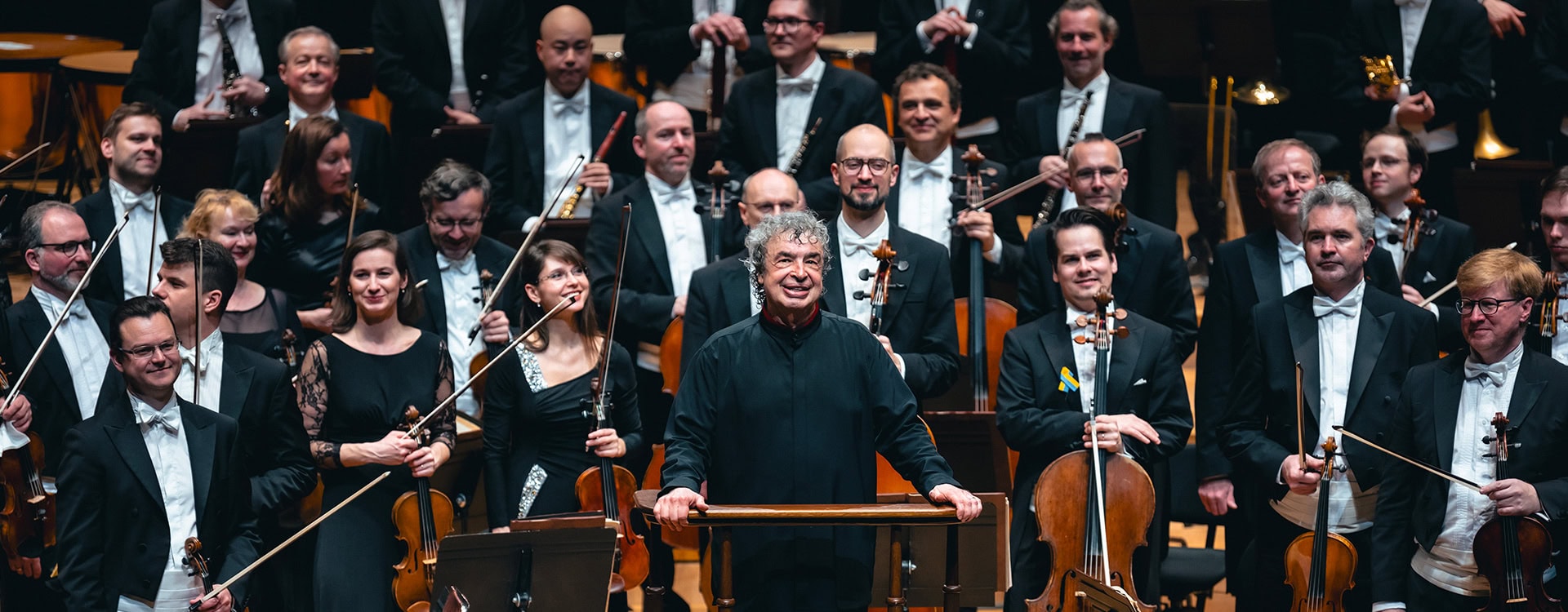
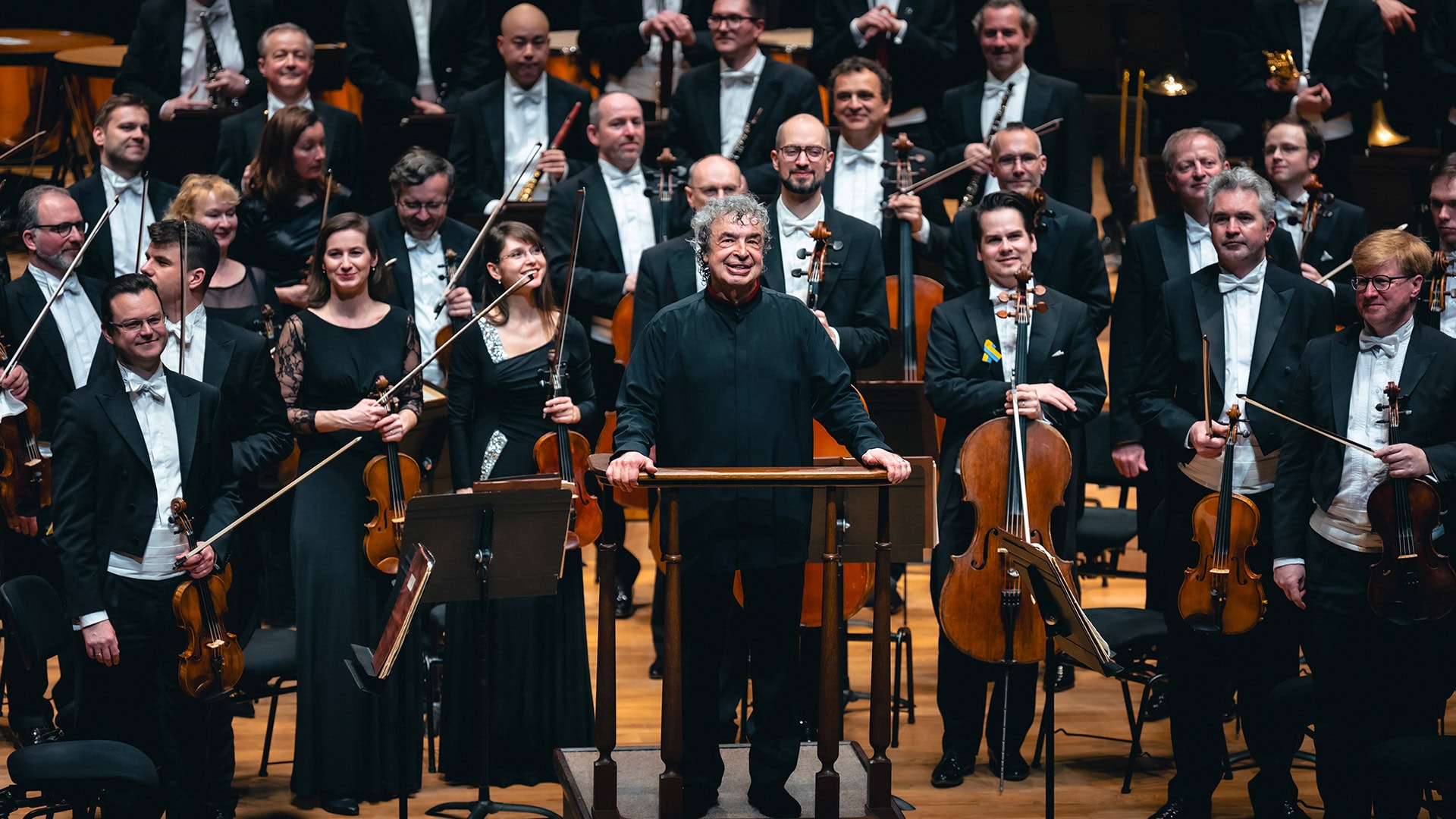
Czech Philharmonic: Leoš Janáček and Antonín Dvořák
Friday, November 22 / 7pm / Grand Hall, Hotel Thermal
Dress code: Black Tie
A Czech Philharmonic program prepared exclusively for its resi-dence at Carnegie Hall in New York. This will be the philharmonic’s only Czech performance of Janáček’s Glagolitic Mass and Dvořák’s Violin Concerto in A minor, Semyon Bychkov conducting.
Program:
Antonín Dvořák (1841–1904): Violin Concerto in A minor, Op. 53
Allegro ma non troppo (att.)
Adagio ma non troppo
Finale. Allegro giocoso, ma non troppo
Leoš Janáček (1854–1928): Glagolitic Mass, cantata for soloists, choir, orchestra and organ
Úvod – Introduction
Gospodi pomiluj – Kyrie
Slava – Gloria
Věruju – Credo
Svet – Sanctus
Agneče Božij – Agnus Dei
Postludium (organ solo)
Intrada – Exodus
PERFORMED BY:
Czech Philharmonic:
violin – Jan Mráček
soprano – Lyubov Petrova
mezzosoprano – Lucie Hilscherová
tenor – Aleš Briscein
bass – David Leigh
organ – Daniela Valtová Kosinová
Prague Philharmonic Choir:
choirmaster – Lukáš Vasilek
CONDUCTOR:
Semyon Bychkov
About the program
Today, Dvořák’s Violin Concerto in A minor is one of the most popular works in the violin repertoire. Nevertheless, it took several years for the work to find its way to the concert hall. Dvořák’s concerto was written at a time when composers were abandoning a purely virtuosic conception for concerto solo parts with the orchestra playing a merely accompanimental role. Now they were seeking how to combine the solo part and orchestra in the thematic and expressive discourse. In November 1882, the concerto was given a private performance with the orchestra of the Royal Academy of Music in Berlin. The soloist at the official premiere on 14 October 1883 in Prague with the orchestra of the National Theatre and the conductor Mořic Anger was František Ondříček, who became an avid proponent and defender of the work. Among great creative figures, Leoš Janáček is remarkable in that the older he got, the more “youthful,” original, and modern the music that he wrote became. This was perhaps because he had lost everything. Released by the cruelty of fate from his ties and concerns for his parents and his children, he was truly able to find himself. He cast aside conventions and tried to get to the heart of things. Janáček’s Glagolitic Mass is one of the most powerful sacred compositions in music history. The 72-year-old composer wrote the music to the text in Old Church Slavonic in 1926 at his favorite spa, Luhačovice. He sketched out the entire Mass in just three weeks! By October 1926, he had finished it. He made additional, quite substantial changes after the premiere, which took place on 5 December 1927 in Brno.
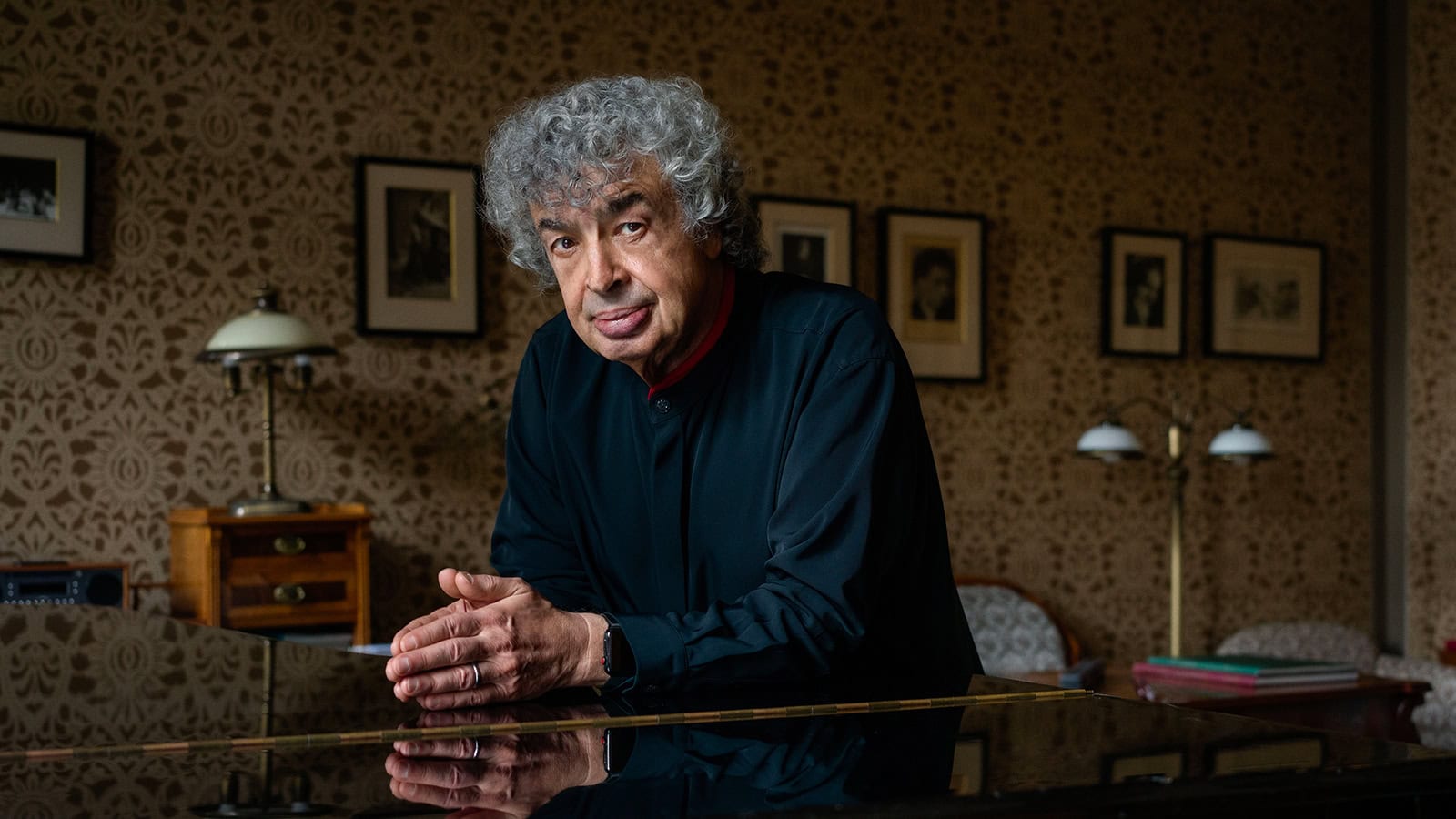
Semyon Bychkov
Semyon Bychkov is the Chief Conductor and Music Director of the Czech Philharmonic. In addition to conducting at Prague’s Rudolfinum, Semyon Bychkov and the Czech Philharmonic in the 2023/2024 season, took the all Dvořák programmes to Korea and across Japan. In spring, took the programmes to Spain, Austria, Germany, Belgium, and France and, at the end of year, the Year of Czech Music 2024 will culminate with three concerts at Carnegie Hall in New York.
Among the significant joint achievements of Semyon Bychkov and the Czech Philharmonic is the release of a 7-CD box set devoted to Tchaikovsky’s symphonic repertoire and a series of international residencies.
In addition to guest engagements with the world’s major orchestras and opera houses, Bychkov holds honorary titles with the BBC Symphony Orchestra – with whom he appears annually at the BBC Proms – and the Royal Academy of Music, who recently awarded him an Honorary Doctorate. Bychkov was named “Conductor of the Year” by the International Opera Awards in 2015 and, by Musical America in 2022.
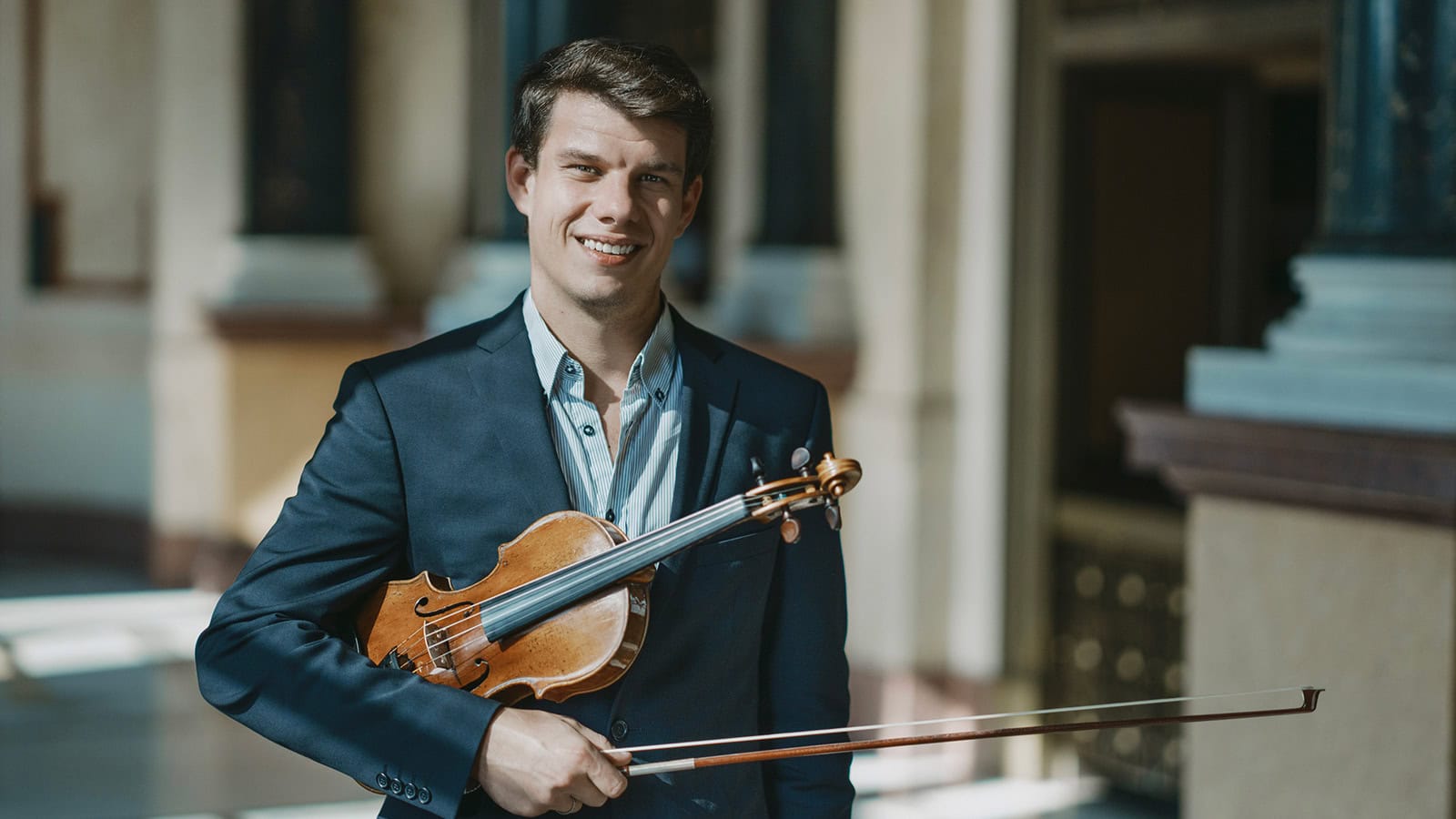
Jan Mráček
The concert master and group leader Jan Mráček is in Czech Philharmonic since 2016. One of the most remarkable talents of his generation since a very young age, he studied with Magdaléna Micková and later on with Jiří Fišer. He regularly attended the courses of Czech violinist Václav Hudeček, which paved the path to a long-term fruitful cooperation. Among his biggest successes are the first prize at the International Violin Competition Beethoven’s Hradec with the Dvořák concerto in 2009 and he was the youngest laureate of the Prague Spring International Festival competition in 2010. He won the first prize at the Fritz Kreisler International Violin Competition at the Vienna Konzerthaus in 2014.
In 2011, he became the youngest soloist in the history of the Prague Radio Symphony Orchestra. As a soloist, he has performed with the Kuopio Symphony Orchestra and Romanian Radio Symphony, both with Sascha Goetzel, Lappeenranta City Orchestra (Finland), Prague Symphony Orchestra (FOK) as well as the Czech Philharmonic. In 2014, he won the third prize at Antonín Dvořák International Chamber Music Competition and the first prize and the audience prize at the International Johannes Brahms Competition in Pörtschachu (Austria) with the Lobkowicz Trio.
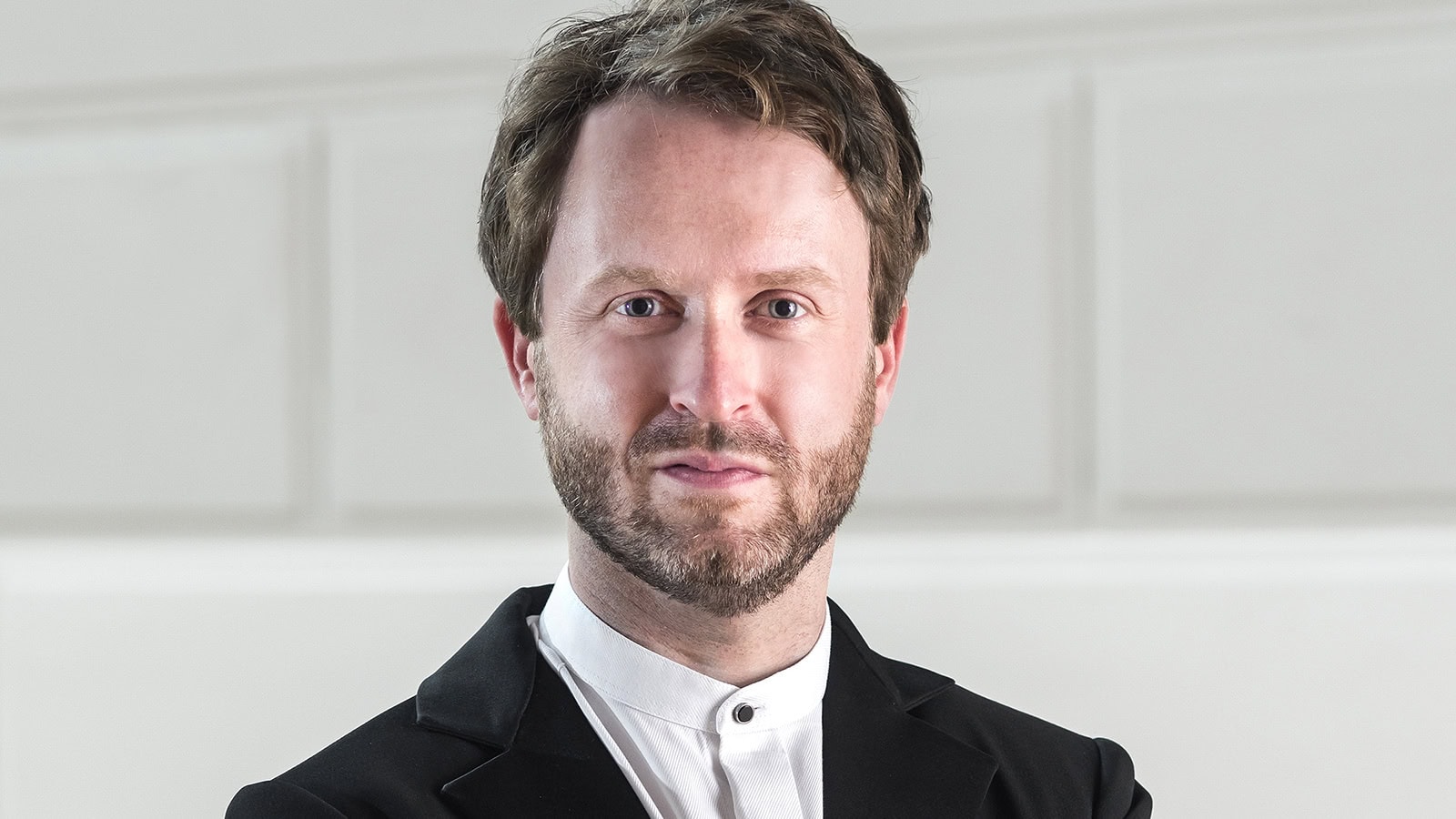
Lukáš Vasilek
Lukáš Vasilek studied conducting (at the Academy of Performing Arts, Prague) and musicology (at Charles University, Prague). Since 2007, Lukáš Vasilek has been the principal conductor of the Prague Philharmonic Choir, which he has guided in the majority of the activities in the Czech Republic and abroad, cooperating with world-renowned conductors. As a conductor or choirmaster, he has participated in numerous recordings the Prague Philharmonic Choir has made for prestigious labels. Besides leading the Prague Philharmonic Choir, Lukáš Vasilek has worked with Martinů Voices, a vocal ensemble he himself founded in 2010. In recent years, Lukáš Vasilek has systematically devoted to recording Bohuslav Martinů’s choral music. His albums featuring the composer’s cantatas met with great international critical response and received prestigious accolades from Gramophone, the BBC Music Magazine and Diapason. The recording of Martinů’s chamber cantatas was also nominated for the BBC Music Magazine Awards 2018.